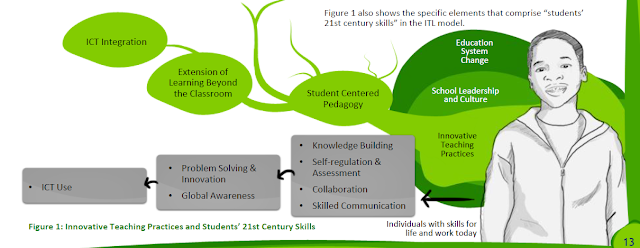Skills and Everyday Life in the 21st Century
When we think about our thinking too often, we may in fact stop thinking. This is just my guess based on the fact that we all have limited working memory capacity. But it is true that when facing a task, if we spend so much time contemplating about the task instead of actually working and accomplishing such task, we end up finishing nothing. Metacognition is useful, but focusing on it at the wrong time and in a wrong way can be counterproductive.
One skill an excellent teacher brings to any classroom is the ability to assess his or her students' knowledge and skills. It is called testing. These tests are not the standardized exams, but tools that a teacher uses to probe how much the students have learned in the class. It takes training and experience to write a good test. This is not too different from performing a technical procedure in which only those who have received adequate and proper training are expected to do the job correctly. With this in mind, let us take a look at the following questions:
The above two questions are from a recent Gallup poll, "21st Century Skills and the Workplace". The first question is straightforward. Respondents can easily return to their schooldays and recall how many long term projects they had performed in school. The second question, however, is not as straightforward.
- "Thinking about your last year in school, about how often, if ever, did you work on a long-term project that took several classes to complete?"
- "Thinking about your last year in school, about how often, if ever, did you use what you were learning about to develop solutions to real problems in your community or in the world?"
Paul Bruno, in a recent blog article, "Teachers Already Use Lots of Real-World Examples", writes:
I don't have a survey finding to back this up, but I'm still extremely confident that virtually every student in the country applied their learning to real-world problems not just in their last year of school, but in their last month of school. In fact, in their last year of school they might have done so at least once almost every day.
The examples are endless. English teachers have students write persuasive essays about current events, math teachers have students use math to optimize resource allocation, and history teachers ask students to apply the lessons of the past to today's dilemmas.
In the last month of school my 8th grade science students had to apply their knowledge of electricity to evaluate the safety and energy efficiency of their homes. My 7th graders had to use information about sexually transmitted diseases and human body systems to evaluate the safety of their own - and hypothetical - lifestyle decisions.
These aren't exceptions; they're the norm. As far as I can tell there aren't any teachers who don't tie real world problems into their classes. If students are saying otherwise, it's likely because such activities are so common that they're taken for granted or because the term "real world problem" is too vague.The above perspective is important in my opinion before one looks at the responses to the questions in the recent Gallup poll. Otherwise, as Paul Bruno points out, "This is the kind of survey that lends itself to misinterpretation."
With this prelude, I would now like to share with the readers of this blog the findings of the Gallup poll, "21st Century Skills and the Workplace".
First, here is a review of the "21st Century Skills" that the Gallup poll considers:
 |
| Downloaded from INNOVATIVE TEACHING AND LEARNING RESEARCH: 2011 Findings and Implications |
And hopefully, we also keep in mind "When we think about our thinking too often, we may in fact stop thinking...."
Comments
Post a Comment